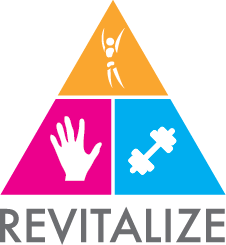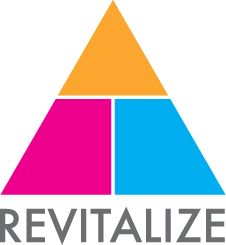At the Revitalize Clinic in Gravesend, we’ve helped over 15,000 people become pain-free, physically fit, and mentally well. As an Osteopath, personal trainer, and counsellor, I’ve dedicated my life to guiding people through evidence-based approaches to health. This blog is based on a recent 60-minute talk I gave to professionals in physically and mentally demanding roles—designed to arm you with practical, powerful tools to make better health decisions every day.
Why Your Daily Health Decisions Matter
In today’s fast-paced world, many of us are so busy that we only stop to consider our health when something goes wrong—pain, illness, stress, burnout. But the truth is, your health is not determined by one-off big changes, but by the small, daily decisions you make.
More importantly, health literacy—your understanding of health and how to support it—is the strongest indicator of your long-term wellbeing. Whether you’re a professional lifting heavy loads, managing high-pressure tasks, or simply trying to stay energised and present for your family, the way you think about health matters.
You Are a Whole System – Not Just Symptoms
Let’s start with a truth that most people overlook: you are a collection of systems—musculoskeletal, psychological, hormonal, and social. These systems are always trying to help you, even when symptoms like pain, stress or fatigue appear.
When we ignore the interconnectedness of these systems, we miss the bigger picture. But when we understand how they interact, we can respond more intelligently to stress, injury, or illness.
Here’s a quick breakdown:
-
Musculoskeletal (MSK): Pain, tightness, stiffness, mobility issues.
-
Psychological: Emotions, problem-solving, self-narratives.
-
Hormonal: Inflammation, energy levels, mood regulation.
-
Social: Support systems, roles, relationships, financial health.
At the centre of all this is what is called the Observing Self—the calm, aware part of you that watches everything else unfold. Grounding yourself in this perspective can offer peace and clarity amidst emotional chaos.
When Everything Works in Harmony
When your systems are in sync, health feels effortless. Your body and mind work as a team. This state of integration happens when:
-
Biological needs are met through wholefoods, movement, hydration and rest.
-
Psychological health is rooted in a positive internal narrative and a life aligned with personal values.
-
Social support comes from safe environments, meaningful relationships, and financial security.
You feel energetic, strong, and resilient.
When Things Start Breaking Down
But when these systems fall out of alignment, the symptoms might seem subtle at first:
-
Biological symptoms: Tiredness, aches, digestive issues, weakness.
-
Psychological signs: Low motivation, irritability, lack of purpose, sexual dysfunction.
-
Social consequences: Isolation, strained relationships, avoidant behaviour.
Understanding these early warning signs can help you intervene before things get worse.
The Framework for Smarter Health Decisions
At Revitalize Clinic, we use the ACT model an align it with Osteopathic philosophy to help clients take consistent action towards long-term wellbeing.
Ask yourself:
“What do I want to be able to say about my body, mind and community in five years?”
This powerful question brings clarity. Then we explore:
-
Values: What truly matters to you?
-
Defusion: Are you avoiding pain or discomfort instead of acting on your values?
-
SMART goals: Make goals Specific, Meaningful, Adaptable, Realistic and Time-based.
This framework transforms abstract ideas into concrete action.
Sleep Hygiene: The #1 Health Multiplier
Sleep is your body’s best performance-enhancing drug.
Deprivation leads to:
-
Slower reflexes
-
Poor decisions
-
More mistakes
-
Higher risk of injury
-
Emotional instability
Quick Wins for Sleep:
-
Same sleep/wake time every day
-
No caffeine 10 hours before bed (its half-life is 6 hours!)
-
Switch off screens 60 mins before sleeping
-
Keep your bedroom dark, quiet, and cool
Warning signs of poor sleep:
-
Morning aches and stiffness
-
Mood swings
-
Feeling exhausted even after sleeping
Don’t underestimate sleep—it affects everything from immunity to productivity.
Ageing Well vs. Accepting Decline
In the West, our lifespan is increasing, but our health span is shrinking.
You’ve probably heard the phrase: “It’s all downhill after 40.” But that’s simply not true. We now know that strength, mobility and cardiovascular health can be maintained—or even improved—into your 60s, 70s and beyond.
Focus on:
-
Daily movement (walking, stretching, lifting)
-
Strength training (key for joint and bone health)
-
Good mechanics (especially when lifting at work)
-
Consistency over intensity (a little every day beats occasional all-out effort)
Your biological age can be dramatically improved by your habits.
Support Your Immune System Through Diet
Every sick day costs you—whether it’s time, energy, money or relationships. But you can reduce your risk significantly with diet.
Top immune-supporting habits:
-
Stay hydrated
-
Prioritise protein, Vitamin D, Vitamin C and Zinc
-
Eat wholefoods with antioxidants
-
Minimise sugar and alcohol
-
Avoid burning the candle at both ends
Supplements like Vitamin D are useful in winter, but real food always comes first.
Also, be conscious of hygiene at work: wash your hands, cover your mouth, and avoid spreading illness—don’t “soldier on” when you’re unwell.
Warming Up: Not Just for the Gym
Ever notice how sluggish you feel first thing in the morning? That’s because your body and brain both need a warm-up.
Whether you’re lifting boxes, working at a desk, or managing a team—start your day with a routine.
Simple Warm-Up Sequence:
-
Joint mobility: neck, shoulders, hips, spine
-
Activation: core, glutes
-
Task rehearsal: mimic movements you’ll do that day
-
Mental prep: visualise your day, set an intention, deep breathing
We even suggest asking yourself: “Can I whistle while doing this task?” If not, you’re likely too tense. Relaxation is key.
The Holistic Health Approach
Pain doesn’t always mean damage. Often, it means your body’s stress bucket is overflowing.
That might be due to:
-
Poor sleep
-
Emotional stress
-
Overuse
-
Nutritional deficiencies
-
Lack of movement
That’s why we encourage our clients at Revitalize Clinic to look at the whole picture, not just the symptom.
Sometimes the best treatment isn’t more rest or more movement—but simply talking to someone. A trusted counsellor, manager or colleague can help ease the emotional load that’s affecting your physical state.
Final Thoughts: Look After Your Body and Mind, and They’ll Look After Your Work
You don’t need a complete overhaul to be healthier. In fact, big changes often fail. It’s small, daily decisions that add up to long-term success.
Here’s a quick recap:
-
Prioritise your sleep
-
Move consistently, not intensely
-
Eat to support immunity
-
Warm up before physical and mental tasks
-
Don’t ignore your emotional health—talk to someone
At the Revitalize Clinic in Gravesend, we specialise in Osteopathy, personal training, and counselling to help you build a body and mind that supports you through work, life, and everything in between.
📞 Need help now? Contact us:
Phone: 01474 356 284
Email: info@revitalizeclinic.co.uk
Book online: www.revitalizeclinic.co.uk

